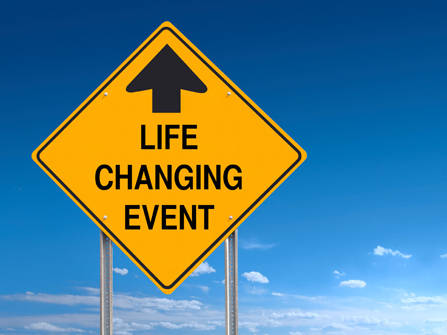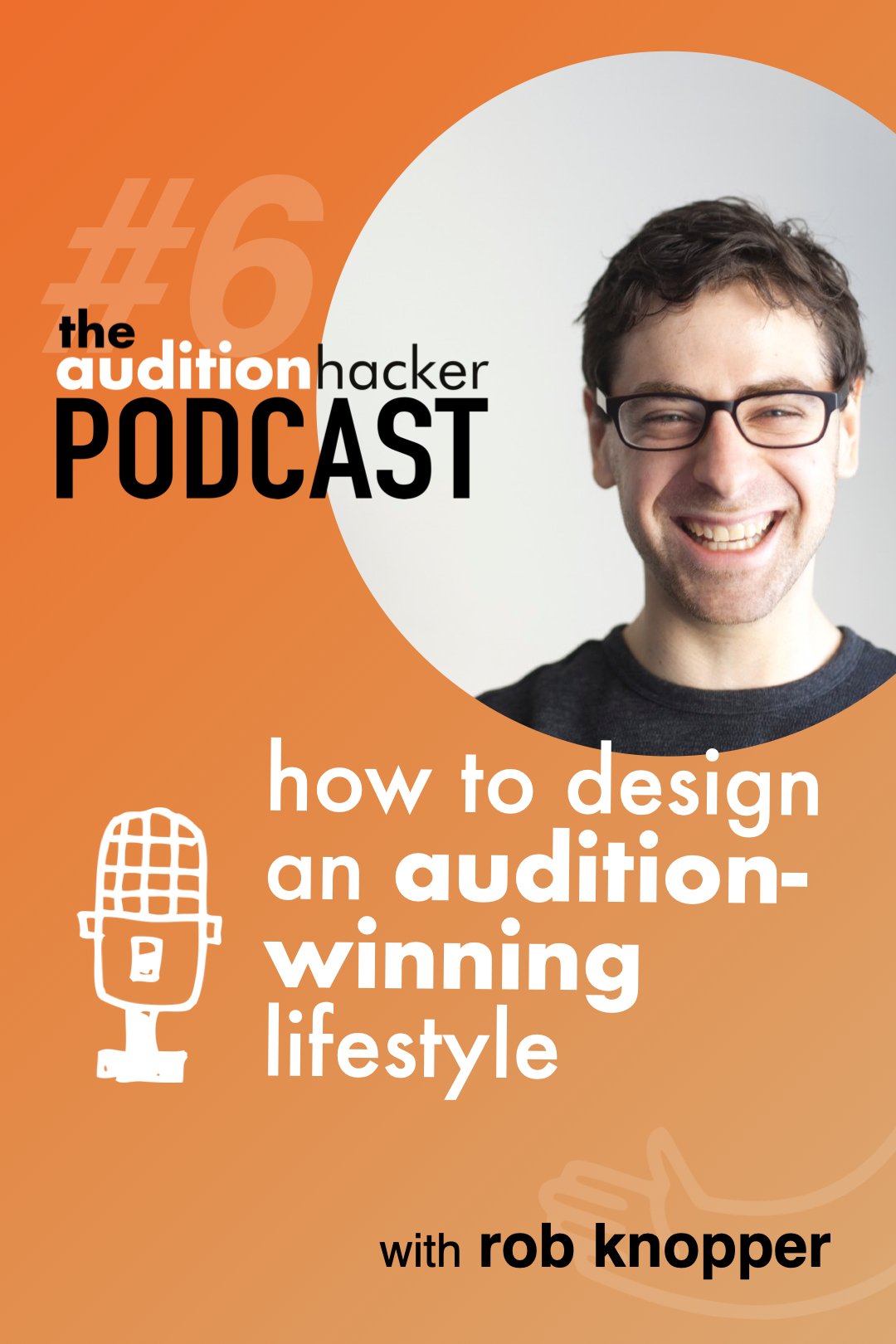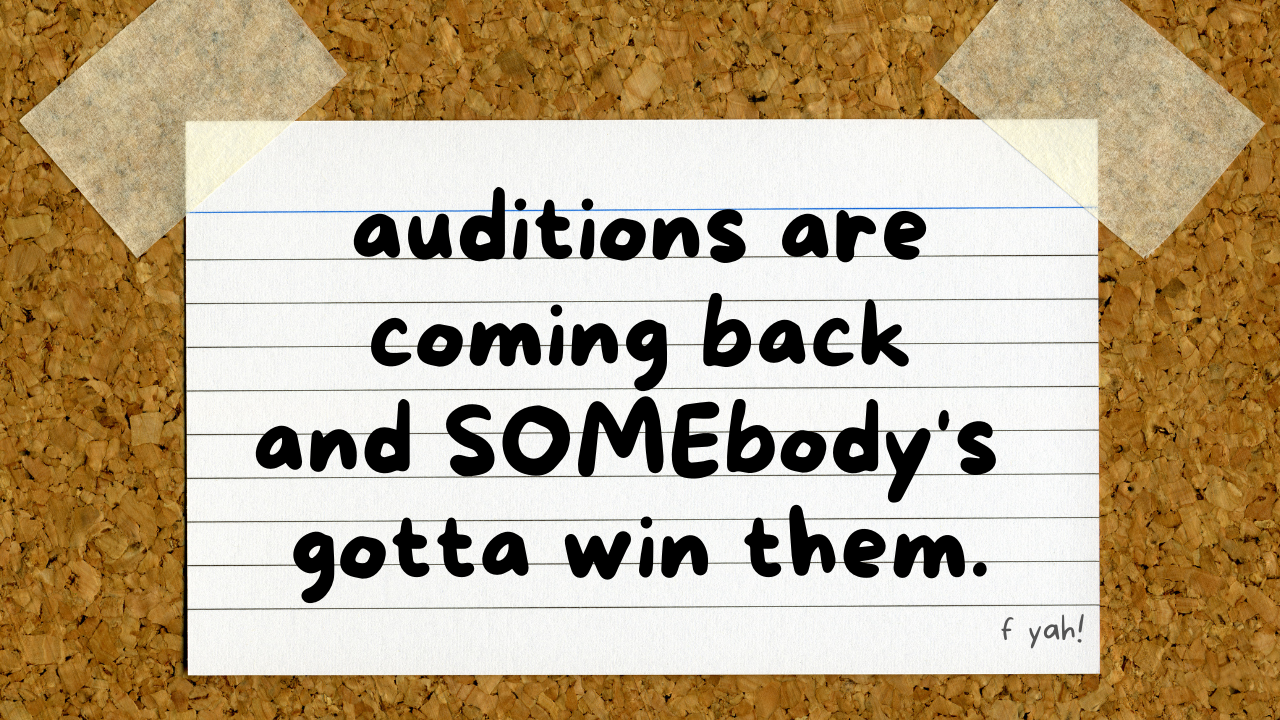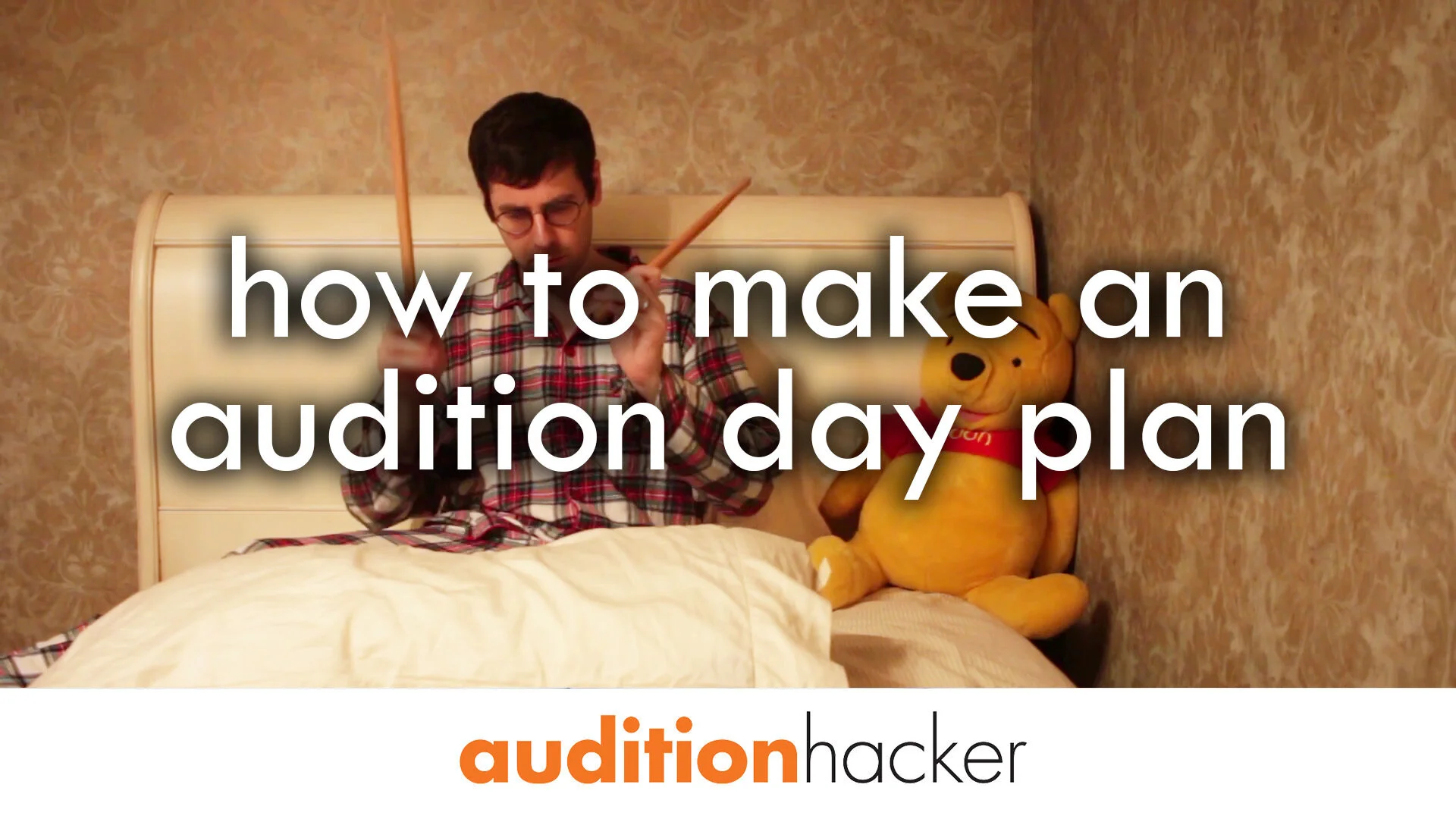a few years ago i made a spreadsheet of every single audition i’ve taken. i called it my “list of all auditions ever."
i did a huge search through my email, which dates back all the way to 2002, and i wrote down the name, the date, and the result of each of my auditions.
it’s fascinating to see them all in one place. it was really a trip down memory lane.
there were 54 in all. i got rejected 4 times from the schleswig-holstein music festival. i also got 4 rejections from tanglewood before i got in on the 5th try. i failed 14 auditions for professional orchestras before winning my job.
each of these failed auditions is like a milestone in my audition history. i can remember how each one felt. but at the same time, each one was important.
why is it so terrible to lose an audition?
when you get an audition list, you feel all sorts of optimism. you get this i-might-just-win-the-lottery-someday feeling.
“well… maybe?” and you start preparing.
you go through months of obsessive work. you spend months alone in a small room with your instrument. you emotionally invest in every. single. decision you make. “should i bring out this accent here? what if it sounds too aggressive and one more person votes no and i lose the audition?!?!”
then you go to the audition and play. and suddenly this project that you sunk hundreds of hours into is over in the blink of an eye. as soon as the proctor says “thank you for coming,” it’s like the orchestra and the world erases you and all the work you did. throws it in the trash with the rest of the rejects. the lights turn off on your chances and it feels like you’re left with nothing. it’s devastating. you try to go out with friends after, but all you can think about is, “i lost. i’m worthless. i can’t believe it happened… AGAIN.”
the next few days feel like they take forever. it’s like you’re a zombie, trudging through your post-audition shock with no hope and nowhere to go.
but look. if you feel bad after an audition, it means you really put everything you had into it. what hurts is the fact that you did your best and your best wasn’t good enough. it feels like a rejection of you as a person and not just of your performance. if you had prepared minimally, placed no emotional importance on the audition, you wouldn’t really care if you lost. but since you invested so much, it’s even more of a heartbreak when you get bad results.
one of the surprising facts about the MET orchestra musicians from this page
it doesn’t matter that your teacher (probably) lost auditions. it doesn’t matter that famous violinist nathan cole lost two auditions in the chicago symphony before winning his job there. or that i lost 40 auditions (college, summer festival, and professional) before winning my spot in the met orchestra. or that the average musician in the MET orchestra had to take 9 auditions before winning their spot.
losing an audition is an intensely personal experience. even if you’re surrounded by friends, you go through it absolutely alone.
hold up. you’re saying lots of successful orchestra musicians lost auditions?
yes, absolutely. and that's NOT A COINCIDENCE.
most of the world’s professional orchestra musicians lost auditions before they won them. and their audition losses are a major reason for their audition win.
the reason it’s not a coincidence is that end-of-audition experience of disappointment is literally the thing that can lead to change. and those moments of change are what eventually lead to winning an audition.
next week i’m going to publish an interview with the MET’s new timpanist, parker lee. and one of his most important moments on his audition journey was his very first professional audition: a rejection from the san diego symphony.
he prepared how he thought he should prepare. then he tested his preparation out by going to the audition to see what happens. it didn’t go well, but it helped him figure out that his audition preparation process needed a new direction. (more on this in next week’s blog.)
a life-changing rejection leads to a life-changing change of plans.
let’s give this experience a name. it’s the audition pivot.
if you’re feeling dejected about getting a rejection just say to yourself, “ah. this must be that ‘audition pivot’ that rob was talking about.” that’ll help you put your feelings into perspective.
here’s how it works:
an audition pivot starts with the disappointment after a loss. and then it morphs into desperation. “WELL IF THAT DIDN’T WORK, WHAT THE HELL ELSE AM I SUPPOSED TO DO?!” and finally it morphs into concrete decisions about how your next audition is going to be different.
“ok, it’s finally time to try that ‘mock auditioning’ thing everyone’s been talking about.”
or
“why am i spending all that time running excerpts over and over? it doesn’t really seem to improve anything.”
or
“maybe i should start writing down the problems with my excerpts and the solutions i find as i’m practicing so i don’t forget them the next day.”
or
“you know, recording myself really seems to work. why do i only do it once? i should start doing it, like, every day."
(you get the point.)
an alumni of the auditionhacker formula emailed me recently and it’s a perfect example of an audition pivot.
“I hadn’t had enough time to prepare, but I’d put in really great work on the excerpts and felt terrific about my progress and how the excerpts were sounding....and then I played my concerto messily. I felt I eliminated myself by not preparing the concerto well. So I wallowed in shame and dejection for about two hours and then got all inspired to dig in with some new strategies.”
— auditionhacker formula alumni
wallow in shame and dejection -> inspiration -> concrete strategies. it’s the same audition pivot with different words.
by the way - kudos to this student. only two hours of shame and dejection? nice. that might be a record.
want to nail your next audition?
here's the 5-part audition preparation method i used to win a job in the met orchestra.
the best part? it works for any instrument.
post-audition sadness isn’t a bad thing. you need it.
the intensity of your post-audition disappointment reveals how much of yourself you gave to this audition. and if you gave it all and lost, it actually means that you’re closer to your goal than if you hadn’t fully prepared.
because if you did your best, and your best wasn’t good enough, you’ve proven to yourself that your current system isn’t working. that information is golden.
(and the opposite is true. if you don’t prepare to the best of your ability, you don't prove whether or not your system works. and you’re back where you started: wondering whether your preparation system can win an audition.)
if you prepared the way you thought you should prepare, and you lost, you need a slap in the face.
you need something to knock you off your game and to push you into trying something radically new. you need to feel something so devastating that you never ever want to feel that way again. these are the types of moments in the big picture of your audition journey that will stand out to you in the future because they forced you to make a bold decision to do something different next time.
your audition story is defined by moments like these.
when i look back at my spreadsheet of all auditions ever, i see a list of the 54 auditions that i took, their dates, and the results. rejection, rejection, rejection, waitlist, rejection, etc. it was a lonely, sad, hopeless, journey.
but if you read between the lines, the real story is that over a period of 10 years i had a long string of major overhauls to my audition preparation process. i updated and updated and updated until i won a job. version 54 of my audition preparation process yielded the result i wanted. and version 54 would never have existed without versions 1-53.
so…what are you going to do?
now let me pose the question to you. it’s march. you’re done with your summer festival auditions, your college auditions, and it’s time to turn the page on those auditions.
what is your update? what’s your change-of-direction-moment going to be?
which practice methods are you going to try next time?
what do you think you need more of?
and what do you think wasted your time?
and how are you going to do it differently next time?
action item: I’m starting a thread about this on the auditionhacker alliance facebook group. go over there and read how some other people are dealing with their audition pivot moment.
keep an eye on auditionhacker for some pivot ideas.
you know me. i’m not going to leave you in the dust. for the next few weeks i’m going to bring you a series of pieces on how to change direction and update your audition preparation.
next week: an interview with parker lee, the new timpanist in the met. you’re going to hear some very interesting, unusual methods of audition prep that you can try incorporating in your next audition.
the week after that: an interview with my colleague steven white about his audition story, which involves some huge setbacks and his valiant fight to overcome them.
the week after that: i’m going to do a live class with noa kageyama from the bulletproof musician walking you through mock auditions, which is one of the huge missing pieces of many musicians’ audition preparation process.
and finally, if you’re thinking about it in advance, audition bootcamp is opening up at the end of april, and i’ll be giving you more details on that.
thanks so much for reading!
-rob
p.s. if you have a friend going through the beginning stages of an audition pivot (aka wallowing in shame and dejection), send them this article. it might help.
want to nail your next audition?
here's the 5-part audition preparation method i used to win a job in the met orchestra.
the best part? it works for any instrument.



















in 2019, a cellist named maria reached out to me about her audition struggles. on paper, she was the “worst audition candidate ever” (her words). she had 2 small children, a full-time teaching job, and hadn’t taken an audition in 4 years.